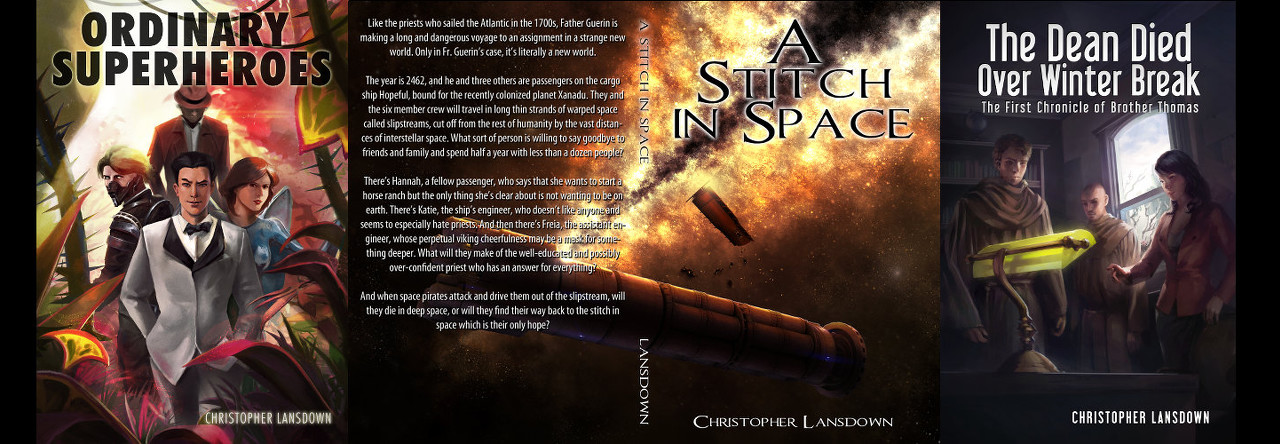Part of the advice one commonly sees about writing novels is that anyone who wants to write a novel should constantly read novels. The advice comes in many forms, some of them badly overstated, but there are some good reasons for at least a moderate version of this.
(To give some context, one of the problems which I have at present is that with three little children, I have very little time for reading and am largely coasting on the reading I did before having multiple children. This is not inherent to having children so much as a trade-off for also going productive work like writing novels, blog posts, having a YouTube channel, programming projects, etc. There are only so many hours in a day and one does need to sleep.)
One of the benefits of reading is that it can show you how wrong the critics are. Or to be more fair to the critics, how narrow (as opposed to universal) their criticism is.
This came up for me recently as I’ve been writing Wedding Flowers Will Do for a Funeral and it occurred to me that there’s very little action—thirty thousand words in and it’s almost all interviewing people. And of course in my mind I can hear the critics saying that there needs to be action. That this is inherently dull. And so forth.
So I went to the library and skimmed over Agatha Christie’s Five Little Pigs. (I’d only seen the David Suchet TV adaptation but it was quite faithful to the book.) It’s an interesting story. The setup is that the daughter of a woman who was, sixteen years ago, convicted of murdering her husband asks Poirot to investigate the crime and prove her innocent.
It’s a good, interesting story. And it’s almost entirely Poirot interviewing people. There is some variety—there’s the section where each wrote down their recollection of what happened. But the setup of the crime being sixteen years previous makes it pretty much impossible for there to be action.
And yet it’s a good story. So if I want to write a story in which most of the action is people talking to each other, I can do that too.

In fact there are writers who have to stop reading while working on books.
LikeLike
People think detective stories need action to be good?
LikeLike
There are some. Trivially, anyone into hardboiled American detective stories, like The Maltese Falcon or The Big Sleep. Basically anything you’d cast Humphrey Bogart in.
But even outside of that, one big distinction one can draw in all mystery is investigating the past versus ongoing crime. The latter has action since it has new murders.
LikeLiked by 1 person
Okay fair enough. But hard boiled is a subgenre. Generally, I don’t think any genre “needs” anything, unless the name of the thing is in the genre, like “action.” If a “detective” story has detectives detecting stuff, that’s good enough for me!
I know you’re not arguing this point. I’m just trying to clarify mine.
LikeLiked by 1 person
Which is a good attitude to take.
As I (think) I mentioned in my post Writing Novels is Hard, one of the problems I have is that I can all too easily imagine the tastes of individual people and let this become a block. No novel is liked by everyone so in no rational sense is it a problem that I can envision someone who won’t like this particular book. But it can be a problem for me anyway, since I can imagine the particular person’s dislike so vividly.
I’m not talking about a real problem, mind you. Say, for example, I might when writing a superhero book think of my mother who dislikes action books. It was never for her to begin with, yet this can all too easily stick in my mind and become something of a nail in my boot.
LikeLiked by 1 person
That’s true for any artist who works in any medium, I think. There’s always going to be THAT GUY who’ll find something negative to say.
We need to forget that guy.
LikeLiked by 1 person
Exactly. And to be clear, it’s not necessarily that guy’s fault. He might be someone who would just politely decline to comment saying that it’s just not his sort of thing. I sometimes have a hard time forgetting him anyway. We all have our weaknesses. 🙂
LikeLike